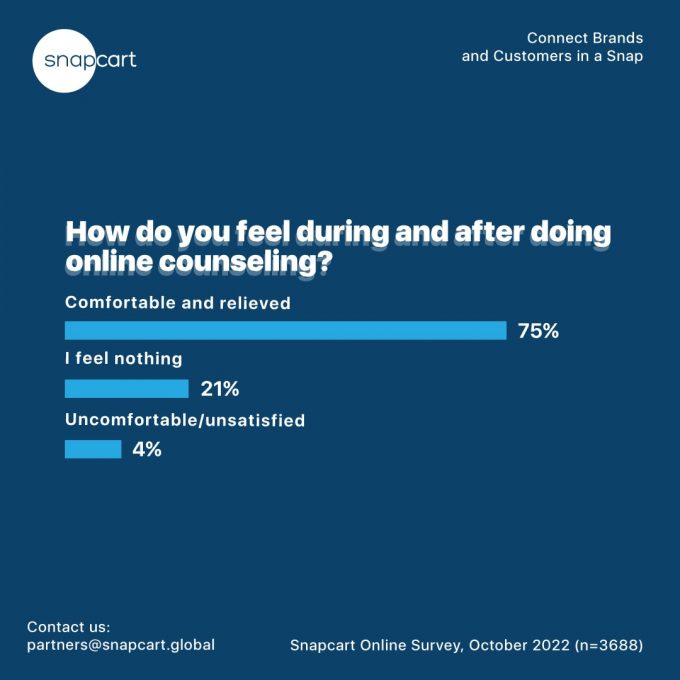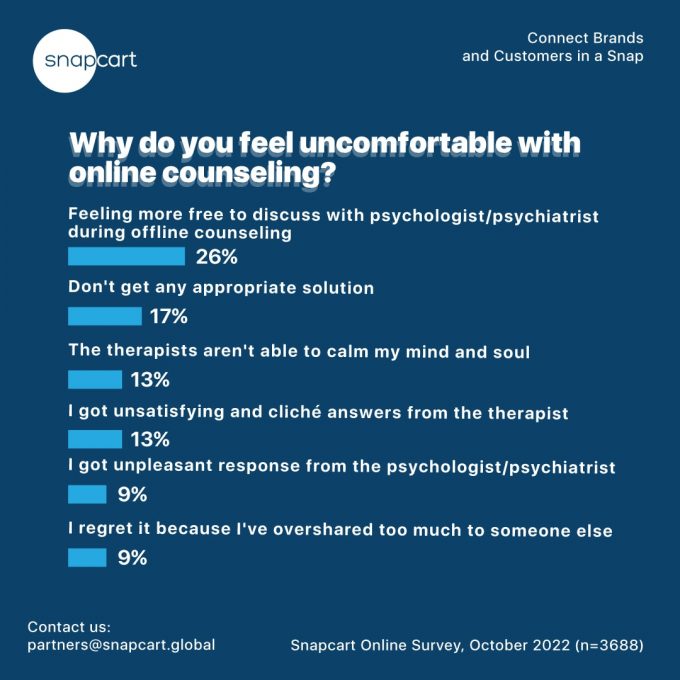Online treatment for medical conditions has started getting popular since Covid-19 began to spread in all over the world. However, how about online counseling service for mental health care?
According to some studies, developing countries have quite huge stigma about mental health [1] & [2]. Thus, in October 2022 Snapcart conducted a study about about the interest and needs of people in Indonesia toward online counseling and other mental health care services, and here are the results.
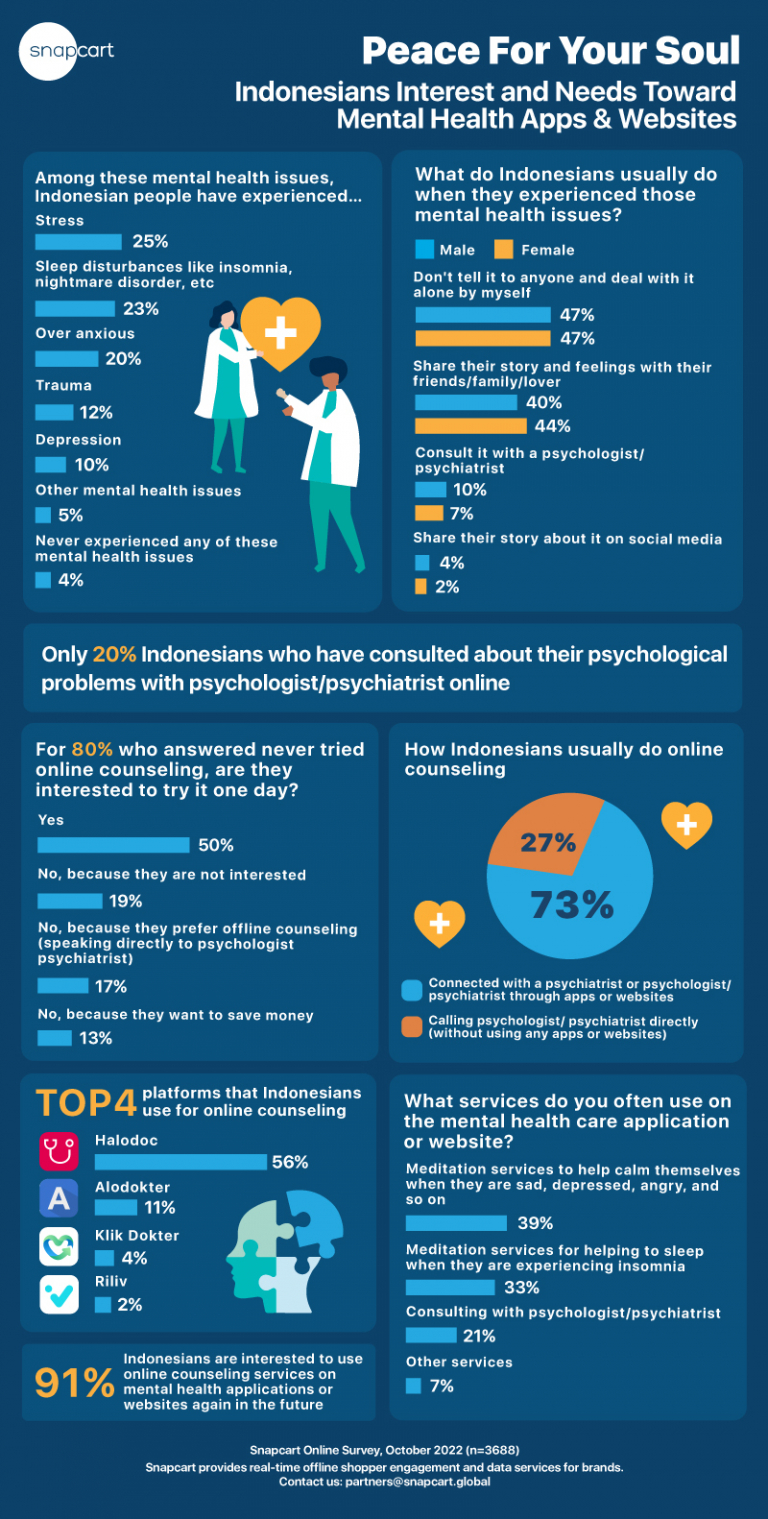
From 3.688 samples, we found out that only 4% Indonesians who have never experienced any mental health issue. Meanwhile those who have experienced it, most of them (47%) always try to deal with it alone by themselves.
However, even though only 8% (10% male and 7% female) who often seek help from psychologists/psychiatrists, but 20% of our respondents confessed that they have tried online counseling, and most of them are youngsters (15-25 year-old people). While on the other side, 50% people who have not tried it are interested to use this service one day.
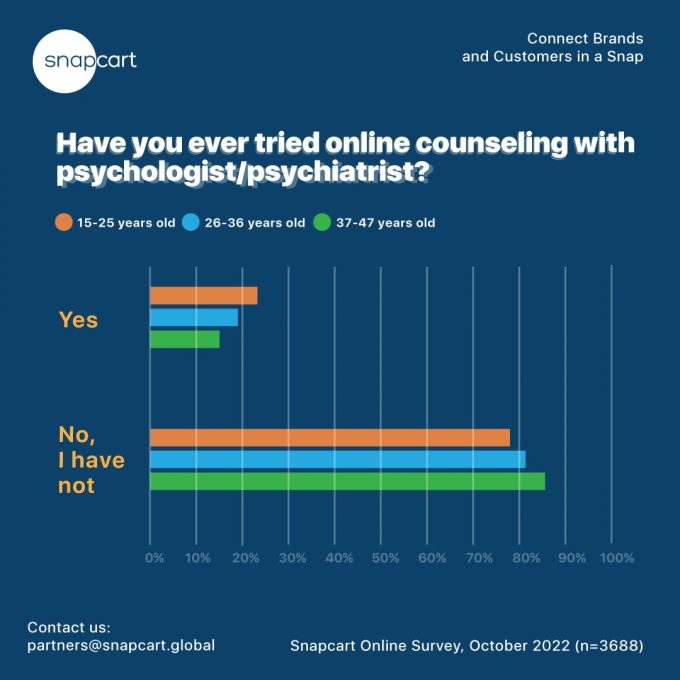
From the infographic we can see that 73% of those who have tried online counseling service said that they usually do it through application or website. But interestingly, among the existence of many applications and websites special for mental health care, most Indonesians prefer to consult their mental health issues with psychiatrists on regular health apps or websites, and Riliv is the only mental health care application that becomes one of the top 4 favourited platforms for people to help them cope with their mental health issue(s).
Furthermore, people also using other services on the apps or websites which they usually use to do online counseling. We found out that online meditation is their most favourite service, and most of those who answered “other services” confessed that they often consult and/or seek treatment from doctors for their medical/physical condition(s) on the app or website.
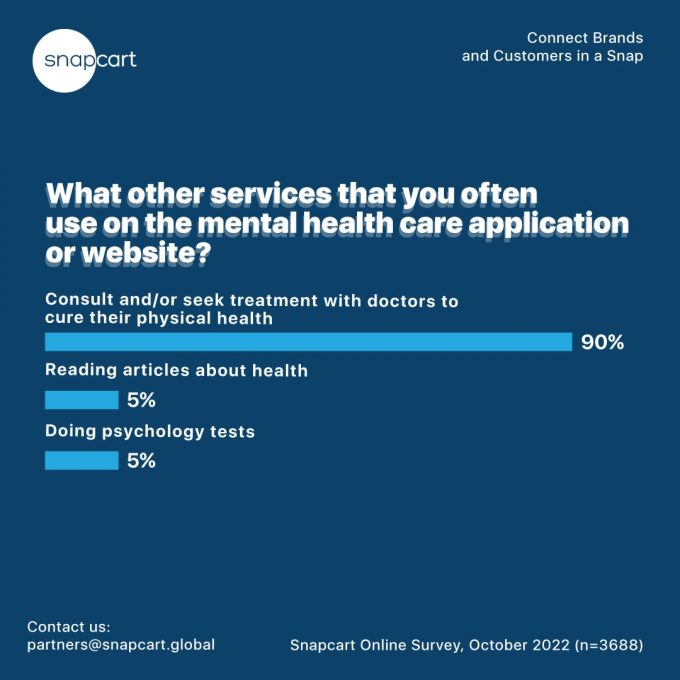
Moreover, despite the fact that people aged 15-25 years old (youngsters) are the ones who dominate those who have tried online counseling, but among 91% Indonesians who would like to use this service again in the future are mostly people from age 26-36 years old. And ironically, those who are not interested anymore to do online counseling are youngsters.
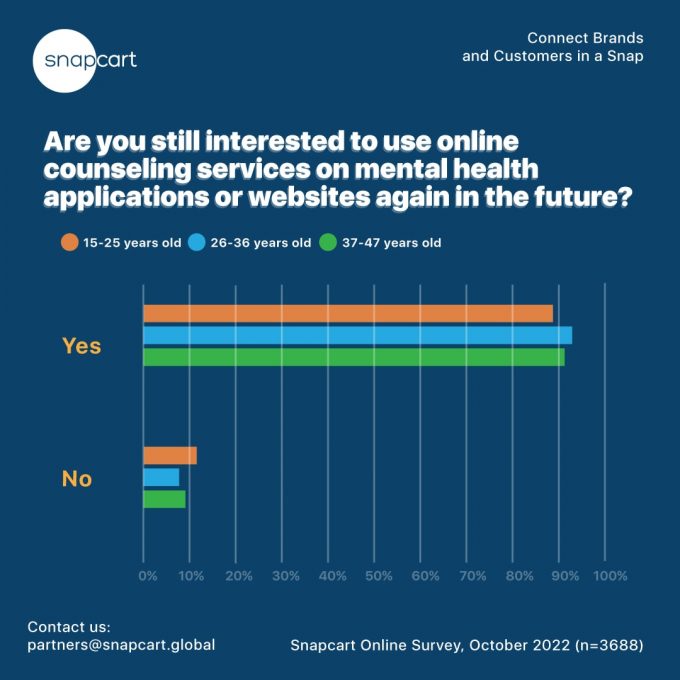
Even though most people (75%) who have tried online counseling felt comfortable and relieved after using this service, but we also asked those who ironically, felt unpleasant/unsatisfied after doing online counseling. And we figured out that most of them felt that way because they want to be more free to discuss with the psychologist/psychiatrist, and they think the only way to do that is with offline counseling.
